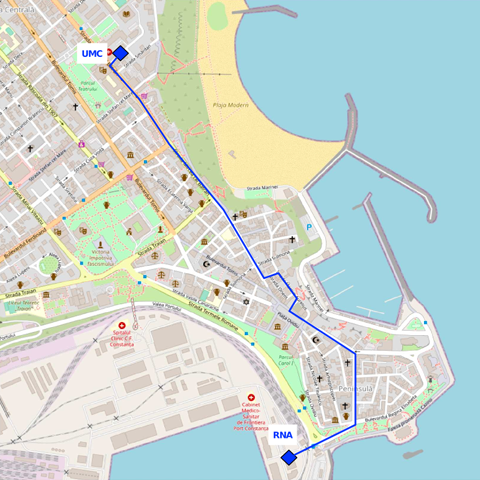The project will accomplish the deployment of advanced QKD networks (RoNaQCI) in the form of a single, unified, national terrestrial backbone with a number of 16 QKD links, covering over 1350km (see Fig. 1 - Implementation), 6 metropolitan terrestrial networks (in Bucharest, Cluj-Napoca, Iasi, Timisoara, Craiova and Constanta – see below) with a total sum of 19 terrestrial QKD links and 1 free-space QKD link all of them integrated and operating with existing communication networks. The project tests and integrates QC technologies at multiple levels and will also exploit RoNaQCI addressing advanced use cases blending quantum and classical communications by combining QRNG and QKD with classical communication protocols using also post quantum algorithms. More explicitly, the project will develops software for: a) monitoring of QKD networks (used firstly on RoNaQCI) including functional, performance and usage parameters; b) employing QRNG devices in signing X.509 security certificates (at UPB, UB, UBB, UTCN, UAIC, TUIasi, UPT, UVT, UCv, CMU and IFIN-HH); c) employing QKD and post-quantum algorithms in VPNtunnelled traffic (all 19 metropolitan qkd links will benefit and this will assure all the use cases involved); d) employing QKD and post-quantum algorithms in SSH traffic as well as other scenarios in distributed computing (UPB-IFIN-HH, UCv-ClusterPower and TUIasi-Imago-Mol).
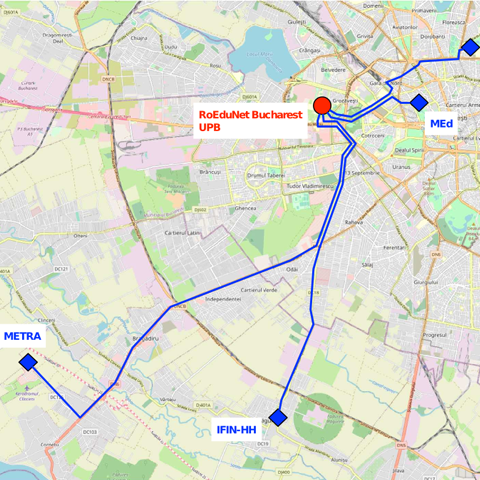
RoNaQCI Bucuresti
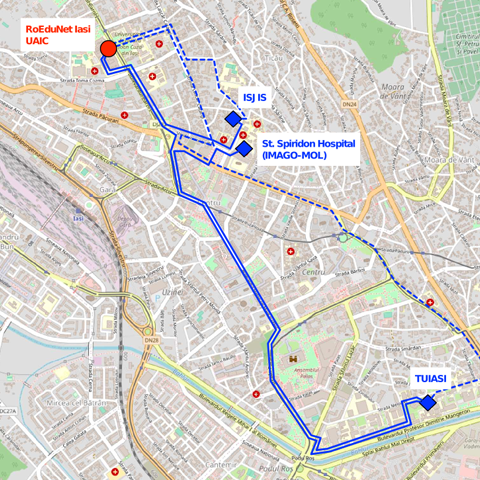
RoNaQCI Iasi
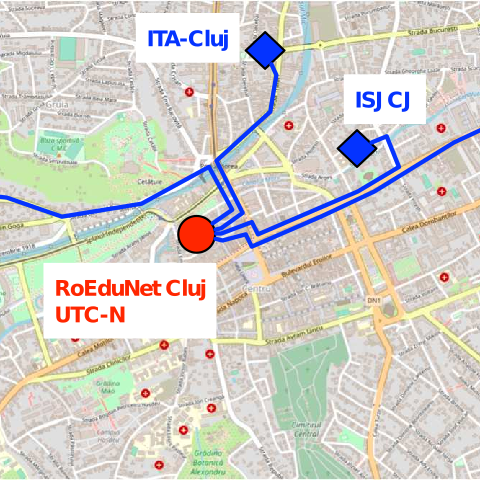
RoNaQCI Cluj-Napoca
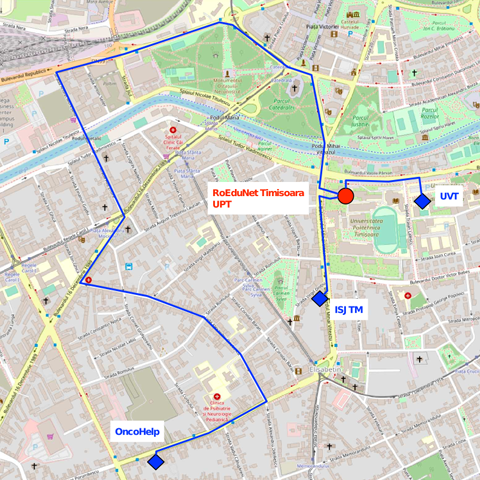
RoNaQCI Timisoara
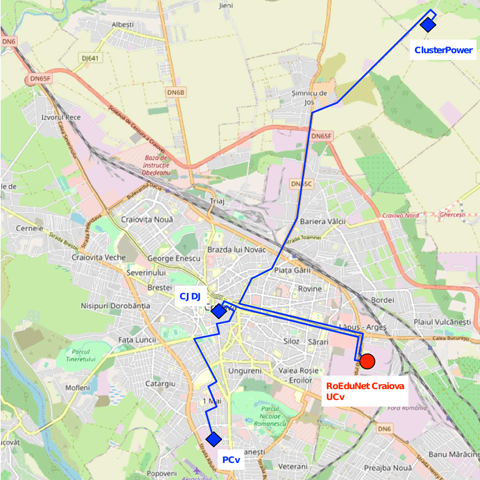
RoNaQCI Craiova
